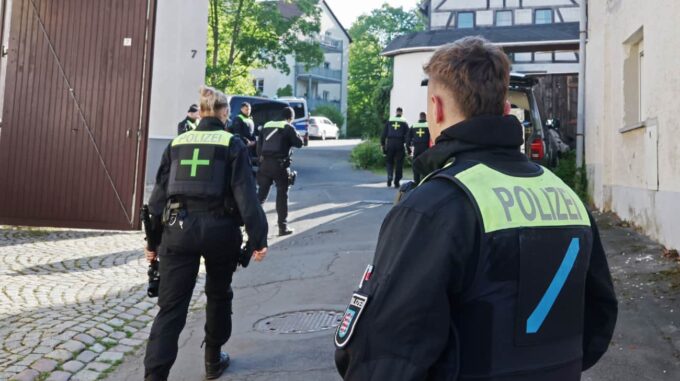A new wave of tensions in the European space: Ukrainian citizens detained in Germany on suspicion of preparing sabotage acts on behalf of Russia

Amid escalating tensions between the West and Moscow in Europe, new ominous details have emerged indicating an increase in Russian intelligence activity on the continent. According to reports from German law enforcement agencies, three Ukrainians have been detained in European Union countries on suspicion of planning and preparing a series of explosive attacks, sending sabotage parcels, and seemingly carrying out this activity under the instructions of Russian special services. This information is confirmed by data from reputable sources, including the German publication Spiegel and the agency "European Pravda," which indicate that the operation was extensive in scale and is currently under thorough investigation. Reports state that at the end of last week and on Tuesday of this week, under the orders of the federal prosecutor’s office, arrests took place in various regions of Germany. Specifically, in the cities of Constance and Cologne, as well as in neighboring Switzerland, law enforcement officers detained three Ukrainian citizens — Vladislav T., Danylo B., and Yevhen B. They have been placed on the wanted list and are accused of engaging in espionage activities aimed at conducting sabotage and terrorist acts. According to official investigative conclusions, the Ukrainians agreed to carry out a criminal order involving arson and explosions using explosive devices, purportedly to be delivered to Germany, then to Ukraine and other countries. Investigation details suggest that the perpetrators had already begun implementing their plans by sending test parcels containing GPS trackers for humanitarian purposes— to study movement routes. One of the detainees, Yevhen B., allegedly purchased trackers in Switzerland and passed them to his compatriot Danylo B. in Constance, from where they were directed to Cologne. There, according to plan, Vladislav T. organized the shipment of parcels to Ukraine to strategically determine the route taken by sabotage cargos. However, investigators emphasize that at this stage, the evidence is still quite weak, and the full scope of the detained individuals’ activities has not yet been definitively established. It should be recalled that this case is not unique in terms of contemporary European security. Last year, widespread reports emerged about a series of explosive parcels sent to various EU countries. Intelligence agencies tend to believe that these attacks were planned by Russian structures, which used Ukrainians as executors and recruited them to perform sabotage acts. At the same time, officials underline that Russian intelligence activities, including their espionage networks, are not only intensifying in Ukraine but also across the European space, aiming to destabilize the situation, increase tensions, and discredit European security institutions. American and European sources suggest that the role of Ukrainian citizens in provocative actions in Europe is still under investigation, but it is clear to the authorities that Russian intelligence agencies are using Ukrainians as tools in their complex geopolitical games. The detention of Ukrainians in Germany confirms that Russia is conducting extensive recruitment and preparation of saboteurs across European countries, attempting to create an intricate network capable of executing attacks and spreading chaos. Overall, the situation remains tense. European security services are actively working to uncover this illegal activity and intend to prevent any attempts to involve Ukrainian citizens in tasks that could undermine the stability and security of the continent. This once again confirms the trend of active use of various channels—from postal shipments to modern technologies—for carrying out sabotage operations with Russian support. It is anticipated that the investigation will uncover many new details, and justice will continue to guard the security of European citizens. While Russian intelligence activities persist, European and Ukrainian law enforcement agencies continue their cooperation to prevent new incidents and apprehend potential saboteurs at early stages. In conclusion, the detention of Ukrainians in Germany on suspicion of preparing explosive acts and sabotage is another signal of changes in the global security situation, demonstrating caution and tension in relations between the West and Russia. The investigation is ongoing, and all attention is focused on how events will unfold, as this involves possible large-scale provocations capable of affecting the security of the entire region.

